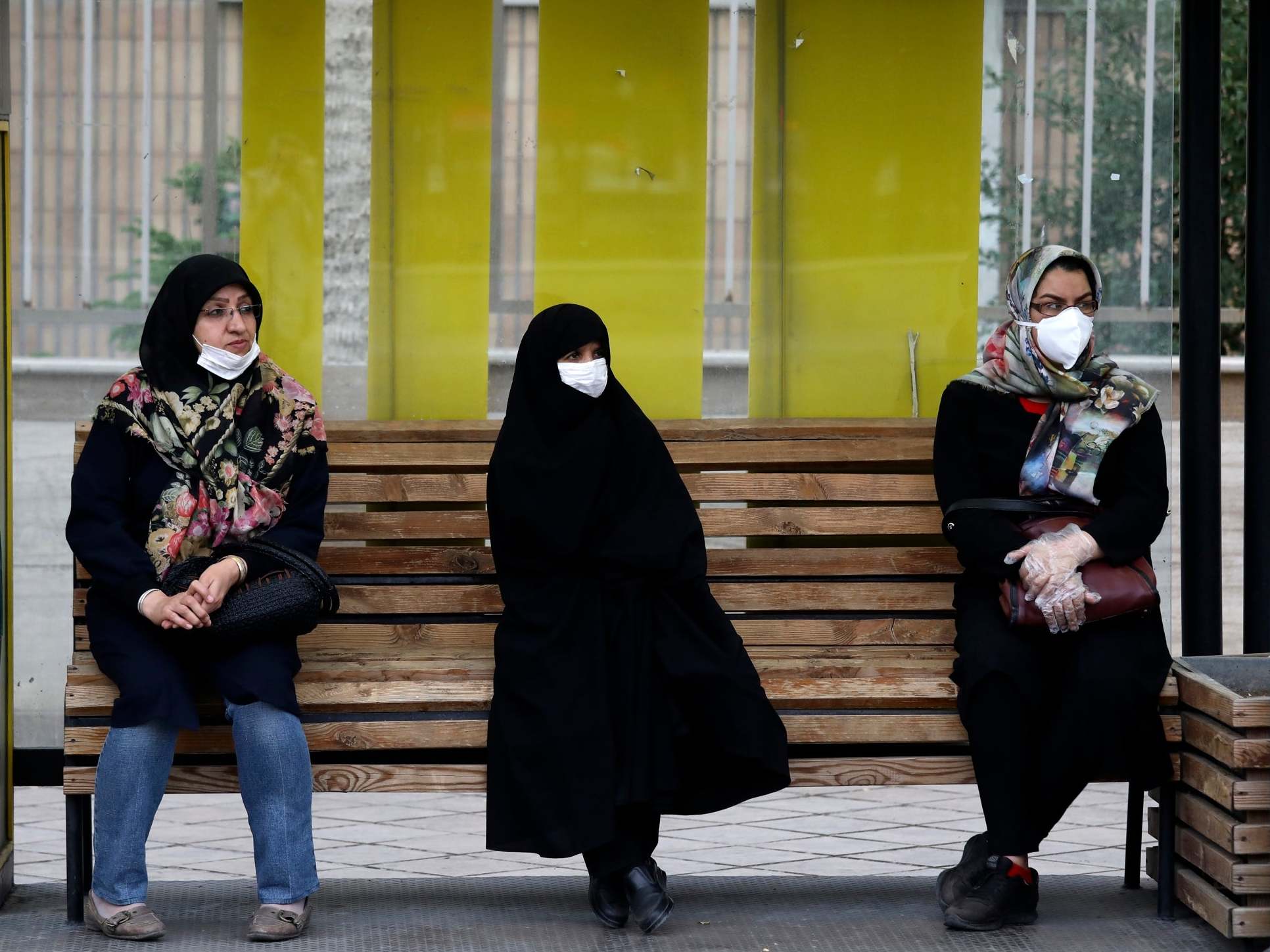Iran declares masks mandatory as it hits record daily coronavirus death toll
Iran is the worst-hit country in the Middle East

Surgical masks have become mandatory in all public places in Iran after the country appeared to be losing control in its battle against Covid-19.
It reported a record 163 deaths attributed to the respiratory pandemic over the last 24 hours, the highest daily fatality count in the country since the disease struck Iran.
In a daily briefing, Iranian health ministry spokeswoman Sima Sadat Lari also reported 2,560 new coronavirus cases, bringing the total of those confirmed to have contracted the virus to at least 240,000.
On Saturday, five members of the Iranian parliament were reported to have tested positive for Covid-19, the latest example of the illness striking the country’s political and religious elite.
Iran’s president Hassan Rouhani has ordered the mandatory use of masks in public spaces starting on Sunday, dispatching police and ideologically motivated paramilitary Basiji forces to enforce the measures, The masks were already obligatory on public transport.
“Government employees should not serve people who do not wear masks and employees who do not wear them should be considered absentees and sent home,” Mr Rouhani said in a speech on Saturday.
More than 11,500 have died of Covid-19 in Iran, the country in the Middle East worst struck by the global pandemic. Iranian authorities have been widely criticised both by domestic and international observers for failing to stop travel to China in the first weeks of the pandemic, failing to implement early lockdown measures and then ignoring their own health officials by reopening the country too quickly.
Some experts have also accused Iranian authorities of undercounting deaths. To date, more than 240,000 people have tested positive for coronavirus out of nearly 1.8 million tested in the nation of 83 million. Public health officials have been alarmed by a rise in cases for nearly a month.
On Sunday, a group of 130 politicians submitted a motion to demand Mr Rouhani attend a session to answer questions about his government’s handling of the pandemic as well as on foreign policy, including the 2015 nuclear deal.
The US withdrawal from the deal and reimposition of sanctions in 2018 exacerbated economic troubles that have damaged the Iranian currency and put pressure on the government to ease lockdown measures that have stifled an already moribund economy.
Critics have accused authorities of failing to enforce social distancing and hygiene measures, triggering a second wave in the pandemic after the country successfully lowered infection and death rates in May.
The newspaper Etemad on Thursday reported that social distancing and hygiene restrictions were being flouted in airports and aboard domestic commercial aircraft.
Iran’s reluctance to impose early lockdown measures because of its economic woes was a key reason for its struggles against the pandemic, according to a 3 July paper by two scientists at the Peace Research Institute in Oslo.
“Tehran’s reluctance to impose a comprehensive lockdown was driven by its lack of capacity to provide economic support to its population,” said the paper. “Iran could not afford severe lockdown measures due to US sanctions, a significant decrease in oil prices, and the leadership’s fears of stirring domestic protest.”
Join our commenting forum
Join thought-provoking conversations, follow other Independent readers and see their replies
Comments